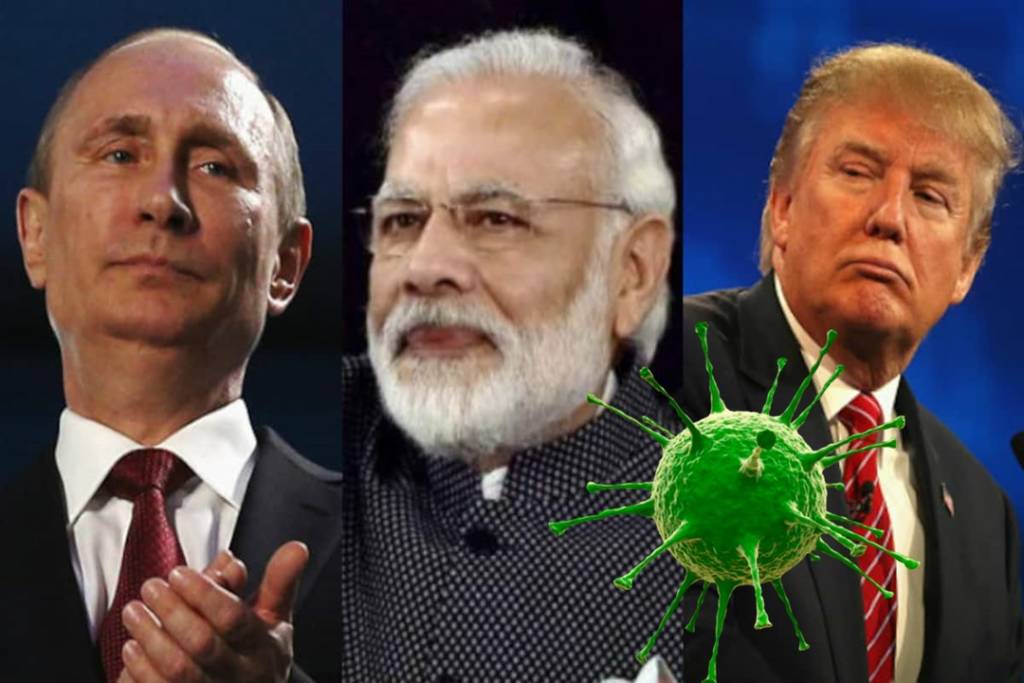In what comes as a subtle indication of the Coronavirus being raised at a crucial international forum, India, Russia and the United States have raised the matter at the 45th anniversary of the Biological and Toxin Weapons Convention (BTWC) coming into force.
Interestingly, the virus is said to have been originated somewhere in the wet markets of Hubei’s Wuhan in China, and the Dragon which has been quite defensive in its attempts to avoid criticism over the issue had earlier blocked a UNSC meet to discuss the novel Wuhan virus.
But despite China’s insistence upon blocking any move to bring up COVID-19 at any international forum, the issue has been finally raised at the 45th anniversary of the BTWC. In its statement for the 45th anniversary of the Biological and Toxin Weapons Convention (BTWC) coming into force, India’s Ministry for External Affairs (MEA) has made certain crucial remarks.
At the outset, the MEA underlined the need for international cooperation, including strengthening the World Health Organisation (WHO)- which has come under severe criticism following its lax and partisan approach that has only aggravated the Coronavirus crisis by misleading the entire world about it and creating unnecessary chaos.
https://twitter.com/shubh19822/status/1243605181805129728
Moreover, the MEA has also stated, “India strongly believes that the BWC must respond effectively to the challenges posed by the new and emerging scientific and technological developments of relevance to the Convention.” It added, “The global economic and social implications of the pandemic, caused by COVID-19, have underlined the need for international cooperation, including institutional strengthening of the WHO.”
In the same statement, India also called for full implementation of the Convention and its compliance in true letter and spirit. The MEA stated, “India reaffirms its unwavering commitment to continue to work together with fellow States Parties towards strengthening the Convention in all its aspects.”
Not just India, the United States has also raised the issue of COVID-19 on the occasion of the 45th anniversary of the said convention. The U.S. State Dept Bureau of Intl Security & Non-proliferation tweeted, “Today we observe the 45th anniversary of the #BiologicalWeaponsConvention and reaffirm the importance of #BWC Parties’ commitments to preventing biological weapons. The #Covid-19 pandemic highlights the importance of #BWC Parties’ commitments to reducing all biological risks.”
Today we observe the 45th anniversary of the #BiologicalWeaponsConvention and reaffirm the importance of #BWC Parties’ commitments to preventing biological weapons. The #Covid-19 pandemic highlights the importance of #BWC Parties’ commitments to reducing all biological risks.
— State ISN Bureau (@StateISN) March 26, 2020
Moreover, Russia too has raised the issue on the aforementioned occasion, the Ministry of Foreign Affairs of the Russian Federation has released a statement, which states, “While the international community is making all possible efforts to counter global spread of the coronavirus, we would like to draw the attention to a significant date – the 45th anniversary of the entry into force of the Convention on the Prohibition of the Development, Production and Stockpiling of Bacteriological (Biological) and Toxin Weapons and on Their Destruction (BWC).”
Interestingly, both the russians & Americans have also mentioned #COVID on the 45th anniversary of Biological weapons convention. https://t.co/hlJM4M10sS pic.twitter.com/B6AegbGESF
— Sidhant Sibal (@sidhant) March 27, 2020
Of course, none of the three countries have explicitly made any scathing allegations of the COVID-19 being a biological weapon. But what these three different statements, including that of India, have done is to very tacitly and subtly suggest that there is something more than what directly meets the eye.
India’s statement also highlights the obsolescence and futility of the World Health Organisation (WHO), its failures and the need to overhaul it completely. Indeed, the UN agency has failed miserably, acting almost as if it were a part of the Chinese state media, that has taken away whatever credibility it enjoyed in the pre-Coronavirus world
It is well known that China had, for a long time, hid the real picture of both the magnitude and nature of Coronavirus that further aggravated the amount of damage that the planet had to bear.
It was being demanded that the issue comes up for discussion at the international platform, and in all probability, the subtle statements made by the three countries might be the first indication of the issue coming up for discussions at a multilateral level.
